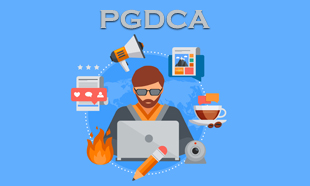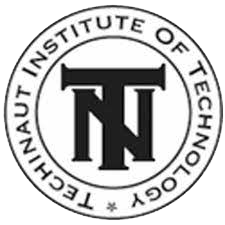7
Post Graduate Diploma in Computer Application" at GD Computer Class, a Techinaut Institute of Technology franchise in Una, Gir Somnath, Gujarat, offers advanced training in computer applications, covering topics from basic computer skills to advanced programming concepts.
POST GRADUATE DIPLOMA IN COMPUTER APPLICATION
GD Computer Class, located in Una, Gir Somnath, Gujarat, offers a comprehensive one-year Post Graduate Diploma in Computer Application (PGDCA) program. This course, conducted as a franchise of Techinaut Institute of Technology, aims to provide students with advanced knowledge and practical skills in various aspects of computer applications. Through a well-structured curriculum covering topics ranging from basic computer skills to advanced programming concepts, students undergo extensive training to become proficient in utilizing computer technology for various applications. To be eligible for this program, students must have a Bachelor's degree in a related field or equivalent experience.
THE OBJECTIVE OF THE COURSE:
The primary objective of the Post Graduate Diploma in Computer Application (PGDCA) course at GD Computer Class is to equip students with advanced knowledge and practical skills in computer applications. By the end of the course, students will be able to:
- Understand the fundamental principles of computer science and technology.
- Develop basic and advanced computer skills, including operating systems, word processing, spreadsheets, and presentation software.
- Gain insights into computer organization, architecture, and operating systems.
- Utilize Microsoft Office applications such as Word, Excel, and PowerPoint for document processing, data analysis, and presentation purposes.
- Understand the impact of information technology on society and the ethical implications of computer usage.
- Explore the basics of the internet, including Internet networks, e-mail communication, and web browsing.
- Gain an introduction to programming concepts and algorithms for problem-solving.
- Apply their knowledge and skills in practical scenarios and projects to solve real-world problems using computer technology. The course emphasizes hands-on learning, allowing students to gain practical experience and develop their problem-solving skills.
COURSE OVERVIEW:
Basic of Computer
Students are introduced to the basics of computers, including hardware components, software applications, input/output devices, and computer peripherals. They gain an understanding of computers' role in modern society and their applications in various fields.
Computer Appreciation
This module covers the appreciation of computers, including their history, evolution, and impact on society. Students learn about the contributions of pioneers in computer science and technology and the role of computers in shaping the modern world.
Computer Organization
Students learn about computer organization and architecture, including CPU, memory, storage devices, input/output systems, and communication interfaces. They understand the internal structure of computers and how data is processed and stored.
Operating System
This module covers operating system concepts and functionalities, including process management, memory management, file systems, and device management. Students learn about different types of operating systems and their features.
MS Word Processing
Students learn to use Microsoft Word for word-processing tasks such as creating, formatting, and editing documents. They explore advanced features like styles, templates, mail merge, and document collaboration.
MS Spreadsheet Package
This module covers Microsoft Excel for spreadsheet processing and data analysis. Students learn to create, format, and manipulate spreadsheets, perform calculations, create charts and graphs, and analyze data using Excel.
MS Presentation Package
Students learn to use Microsoft PowerPoint to create presentations. They understand how to design slides, add content, apply animations and transitions, and deliver effective PowerPoint presentations.
Information Technology and Society
This module explores information technology's impact on society, including its role in communication, education, healthcare, business, and governance. Students discuss the ethical implications of computer usage and digital citizenship.
Introduction to Internet
Students gain an introduction to the internet, including its history, architecture, and functionalities. They learn about internet protocols, domain names, web browsers, search engines, and online communication tools.
Internet Network
This module covers internet networks and communication protocols, including TCP/IP, HTTP, FTP, and SMTP. Students understand how data is transmitted over the internet and how networks are interconnected.
Students learn about e-mail communication, including composing, sending, receiving, and managing e-mails. They explore e-mail etiquette, attachments, folders, filters, and spam management techniques.
Introduction to Programming
This module introduces programming concepts and techniques. Students learn about algorithms, flowcharts, pseudocode, variables, data types, control structures, functions, and arrays.
Algorithms for Problem Solving
Students learn how to design and analyze algorithms for solving computational problems. They understand algorithmic complexity, efficiency, and optimization techniques for problem-solving.
Practical Applications and Projects
Students apply their knowledge and skills in practical scenarios and projects involving real-world problems. They work on programming assignments, case studies, and projects to develop solutions using computer technology.
Final Assessment and Certification
Students undergo a comprehensive final assessment, which includes both theoretical and practical components, to evaluate their understanding and proficiency in computer applications. The assessment is designed to reflect real-world scenarios and challenges, ensuring that students are well-prepared for their future careers. Those who complete the course and pass the examination are awarded a Post Graduate Diploma in Computer Application (PGDCA) from GD Computer Class.
Career Opportunities and Further Studies
Graduates of the PGDCA course have a wide range of exciting career opportunities in fields such as software development, system analysis, database administration, web development, and IT consulting. This variety of career paths should make potential students feel hopeful and excited about their future prospects in the field of computer applications.
CONCLUSION:
The Post Graduate Diploma in Computer Application (PGDCA) course at GD Computer Class offers a comprehensive computer application training, covering a wide range of topics essential to advanced computer science and technology. This comprehensive nature of the course should reassure potential students about the breadth of knowledge they will gain, making them feel confident in their decision to join the GD Computer Class.


